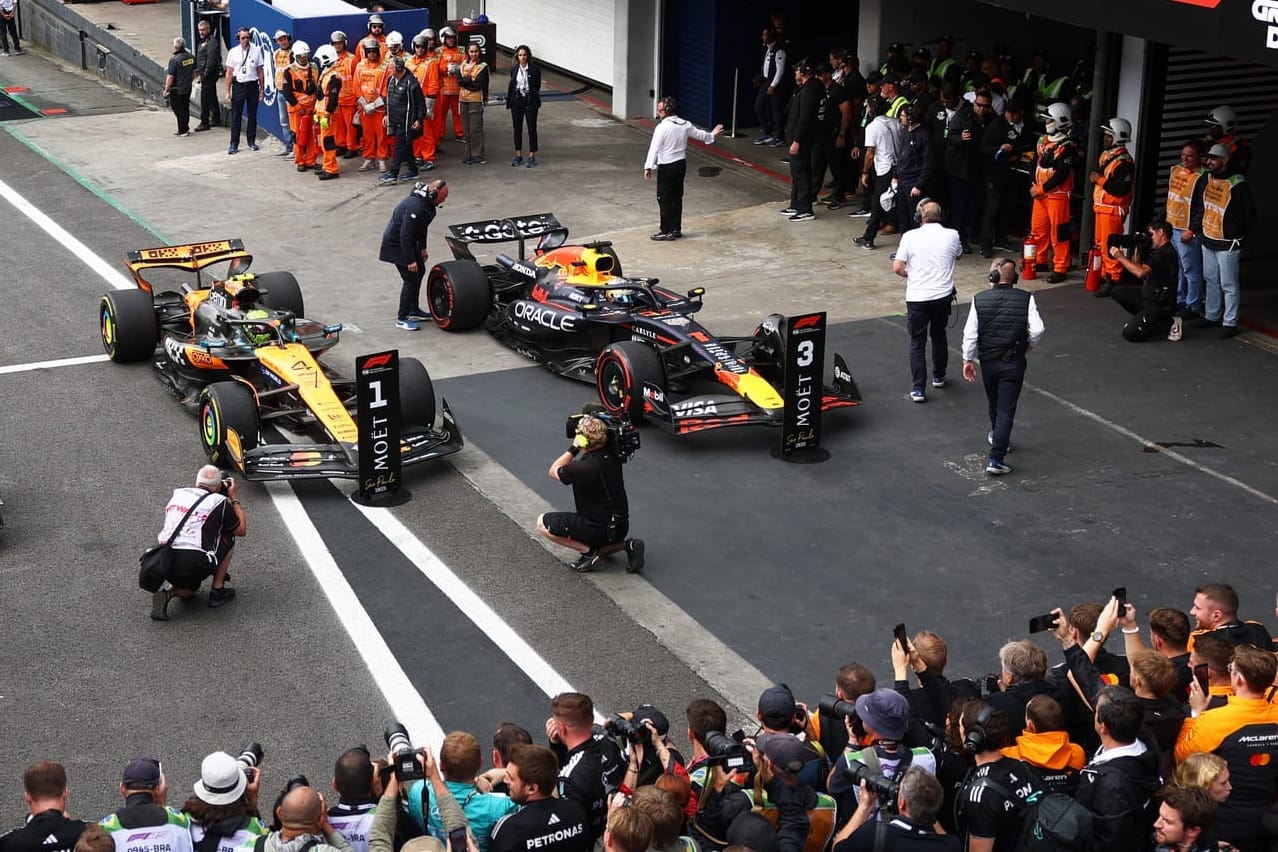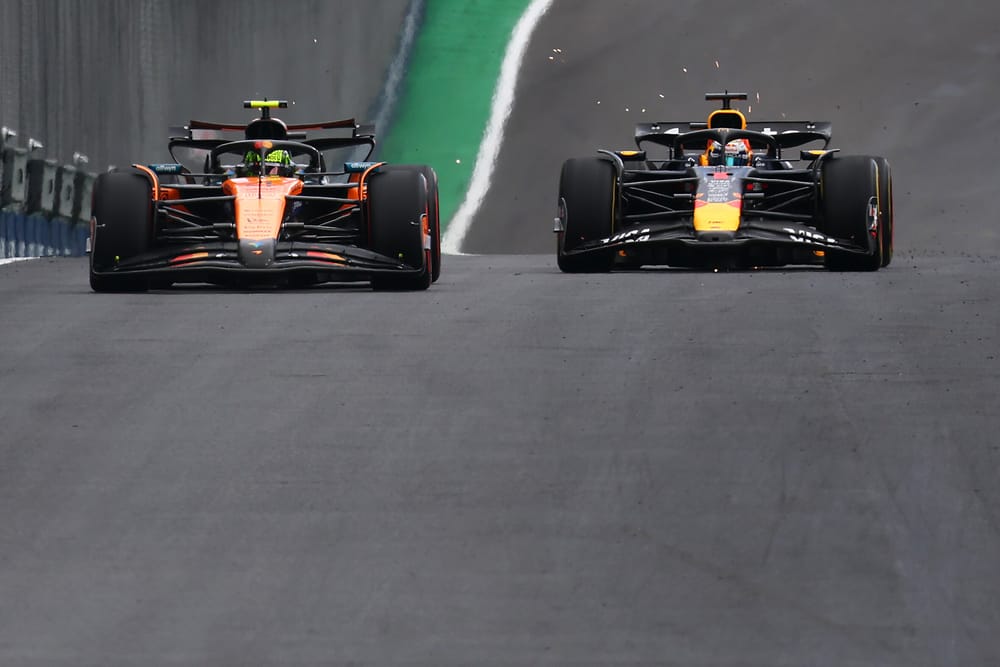The debate triggered by McLaren about whether Max Verstappen's Brazilian Grand Prix engine swap should count in Red Bull's cost cap is expected to be brought up in Friday's F1 Commission meeting, with a final call potentially having ramifications for the title battle.
As first reported by The Race, McLaren is seeking answers from the FIA about whether the move by Red Bull to swap Verstappen's power unit at Interlagos falls inside or outside its rival's cost cap.
The question has been posed because the line between when engine changes must be included within the cap, and when they can be outside, is not specifically covered in F1's financial regulations.
Instead, the FIA has issued guidance to teams that there needs to be good reasoning for changes of power units if they are not to be included in the cost cap.
Some teams, including McLaren, believe that this means that if a team has genuine reliability concerns then that will allow a change without financial consequences. However, if a team voluntarily opts for an engine swap for pure performance reasons, then that should be included in the cost cap.
It is a grey area though, and this is why McLaren boss Andrea Stella spoke out in Brazil about why he wanted a better understanding of the situation from the FIA with regards to what Red Bull did, after the team claimed it was done for a performance gain.
"These kind of power unit changes, they challenge the regulations," explained Stella. "I will be interested in understanding if the cost of this engine now goes in the cost cap or not.
"If the engine was changed for performance reasons, it should go in the cost cap.
"So let's see if this is the case, not that I will be able to see, as it's all on the Red Bull side.
"But this is also one reason why we wouldn't do it, because it would end up in the cost cap."
Potential title implications

Stella's stance, in raising his concerns in public, needs to be seen in the context that it is not just about stirring things up for Red Bull as the title battle nears its conclusion.
Instead, McLaren's pursuit of a definitive answer over the consequences of engine changes for performance reasons comes as it faces its own internal debate about whether it might need to make a swap for Lando Norris and/or Oscar Piastri.
Both drivers have used the maximum number of free components in their pools when it comes to the main items: the V6 engine, MGU-H, turbocharger, MGU-K, control electronics and battery.
And while McLaren hopes that it can complete the campaign with its current allocation, it is not something that can be guaranteed with three full events remaining.
A forced swap because of a failure will have to be done if a problem flares up, but equally McLaren will want total clarity about what strategy options it has to make a change on performance grounds too.
Such a call could come into view if one of its drivers suffers a poor qualifying and already faces a lowly grid slot - so the hit from an engine swap would not be extreme.
It is clear from what Stella said in Brazil that McLaren does not want to make a change within the cost cap, because the extra expenditure could tip it over the spending limits for this season.
While the specific costs of a power unit are not known, the 2026 F1 regulations do offer some insight into the kind of figures being talked about.
As part of revised power unit financial regulations, next year's rules lay out a reliability allowance for the different components.
Internal combustion engine - $1million
Turbocharger - $150,000
MGU-K – $175,000
Control electronics - $215,000
Energy store - $215,000
This effectively makes a full power unit for next year equivalent to $1.755m in the cost cap - so this year's version with an MGU-H is probably close to $2m.
From McLaren's perspective, the engine considerations are more complicated than Red Bull's because it is having to take into account both of its drivers in any call that it makes.
Handing just one of its drivers a fresh power unit to help boost performance could impact the title battle, even when taking into account any grid drop penalty that may be required.
Verstappen showed with his charge to third in Brazil that any hit from an engine swap, even after a poor grid position from qualifying or a pitlane start, can still be recovered from.
So any move that McLaren made to change engines for performance would almost certainly likely need to be equalled across both cars.
If such a double-hit was to be included within the cost cap, then a circa $4m cost would be quite hefty especially as teams try to get as close to the spending limits as possible each year - so there may not be such leeway left in McLaren's accounts.
Rule change decisions
As well as that question about whether such engine changes fall inside or outside of the cost cap, a number of other proposals are being evaluated at the F1 commission.
There is understood to be a conversation topic tabled about whether F1 needs to introduce rules that can prevent races from being one-stops.
A number of options are on the table for this, including making it mandatory to use all three tyre compounds, or having a maximum mileage for a tyre set, but there is not understood to be much support for this idea.
There are also expected to be discussions about potential weekend format revisions, including changes regarding the red flag treatment of a practice session on sprint weekends, a potential tweaking of the Q1 and Q2 durations in 2026 and whether race lengths should be more uniform in terms of the time taken to complete.



